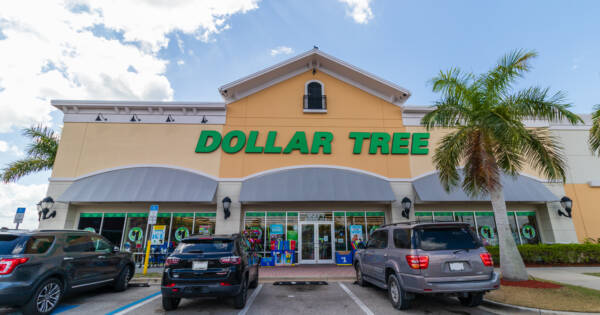If you’re thinking about relocating for your golden years, then you’ll want to consider your options. That’s because where you live determines your cost of living, healthcare access, recreation options, and general quality of life. So many factors beyond the weather affect the “retire-ability” of a city.
WalletHub recently assessed more than 180 of the largest U.S. cities to find the worst cities for retirees. The analysis scored each city’s affordability, activities, healthcare, and quality of life from 1 to 182. The closer the score is to 182, the worse the conditions are in that city for the given category.
So, what cities should retirees cross off their lists? Before packing up and moving, check out this list of 10 cities to avoid retiring in.
Bridgeport, CT
- Affordability: 179
- Activities: 164
- Health care: 16
- Quality of Life: 149
If you’re eyeing New England for retirement, then your golden years might be brighter somewhere other than Bridgeport, Connecticut. It places near the bottom of the WalletHub rankings on affordability, activities, and quality of life.
Some of the affordability issues stem from Connecticut’s high tax burden. On the positive side, Bridgeport ranks highly on the list for health care. Since access to quality health care gets even more important as we age, it has that going for it.
 Shutterstock
ShutterstockNewark, NJ
- Affordability: 173
- Activities: 63
- Health care: 112
- Quality of Life: 163
Newark is another East Coast city that retirees may want to avoid. Much like Connecticut, New Jersey also has high taxes. So that factor contributes to its low ranking for affordability.
Additionally, the city rates poorly for health care and quality of life. It’s worth noting that Newark’s score for activities is decent. So, this Garden State city isn’t devoid of things to do.
 Shutterstock
ShutterstockSan Bernardino, CA
- Affordability: 77
- Activities: 176
- Health care: 173
- Quality of Life: 173
While San Bernardino cracks into the top 100 cities for affordability, the Southern California city struggles in the other areas that WalletHub assesses. That is to say, it comes in near the bottom for activities, health care, and quality of life.
The city’s close proximity to Los Angeles does give it a valuable upside. Southern California is generally an expensive region of the country. San Bernardino is a relatively affordable spot for retirees who want to live near L.A. as a result.
 Shutterstock
ShutterstockRancho Cucamonga, CA
- Affordability: 134
- Activities: 180
- Health care: 170
- Quality of Life: 69
Rancho Cucamonga is another Southern California city that seniors may want to steer clear of come retirement. It’s a suburb of San Bernardino that’s slightly closer to bustling Los Angeles and the coast.
Unlike San Bernardino, Rancho Cucamonga doesn’t rank within the top 100 cities for affordability. That makes it less attractive from a financial perspective. However, it ranks better for quality of life.
 Shutterstock
ShutterstockStockton, CA
- Affordability: 103
- Activities: 173
- Health care: 167
- Quality of Life: 136
Located about an hour and a half away from San Francisco, Stockton is yet another California city that senior citizens may want to avoid. Since California is known for high taxes, it isn’t a surprise that Stockton doesn’t rank well for affordability.
In addition, Stockton places poorly on activities, health care, and quality of life. That said, Stockton earns an A+ for diversity, according to Niche. So, Stockton isn’t without its merits.
 Shutterstock
ShutterstockDetroit, MI
- Affordability: 107
- Activities: 112
- Health care: 162
- Quality of Life: 181
Detroit ranks just shy of rock bottom for quality of life, according to the WalletHub assessment. High crime, for example, is a quality of life issue the Motor City faces. NeighborhoodScout says Detroit residents have a 1 in 44 chance of becoming a victim of a violent crime.
Beyond the quality of life, Detroit isn’t a great fit for retirees when it comes to health care, activities, and affordability. Therefore, Michigan’s largest city doesn’t offer much for seniors looking to relocate for retirement.
 Shutterstock
ShutterstockVancouver, WA
- Affordability: 177
- Activities: 85
- Health care: 67
- Quality of Life: 124
Not to be confused with Vancouver, B.C., Washington state’s Vancouver is located slightly north of the border with Oregon. So, it’s only about 15 minutes away from Portland, Oregon.
Even though Vancouver cracks into the top 100 cities for health care and activities, the city ranks poorly for affordability and quality of life. WalletHub ranked the other Pacific Northwest cities it assessed higher — Seattle, Portland, Tacoma, Salem, and Spokane.
 Shutterstock
ShutterstockBaltimore, MD
- Affordability: 150
- Activities: 87
- Health care: 130
- Quality of Life: 139
If you want to retire somewhere on the East Coast, then you might want to avoid Baltimore. That’s because the Maryland city ranks below par for affordability, health care, and quality of life.
Not unlike Detroit, high crime is something the city experiences. According to NeighborhoodScout, the residents of Baltimore have a 1 in 61 chance of becoming a victim of a violent crime.
 Shutterstock
ShutterstockWichita, KS
- Affordability: 104
- Activities: 128
- Health care: 148
- Quality of Life: 169
Let’s head to the Midwest for this next one. Due to its unsatisfactory rankings in affordability, activities, health care, and quality of life, Wichita is one of the least retirement-friendly cities in the country.
If you want to retire in this region, then Overland Park may be a better fit. Overland Park, the other Kansas city WalletHub assessed, ranks 41 out of 182 cities. Wichita ranks 174 out of 182 cities.
 Shutterstock
ShutterstockLubbock, TX
- Affordability: 84
- Activities: 153
- Health care: 163
- Quality of Life: 158
Located in northwest Texas, Lubbock rounds out the list of 10 cities to avoid retiring in. It has an OK rank for affordability, but it ranks poorly otherwise.
If the Lone Star State is your retirement destination of choice, then there are several cities that rank considerably higher. Austin, Brownsville, San Antonio, Fort Worth, and Dallas are just a few of the cities to consider.
 Shutterstock
Shutterstock







